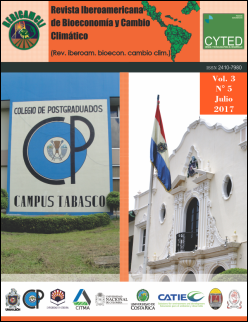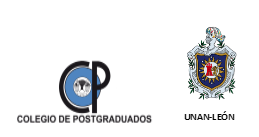Advances of Archosargus probatocephalus (WALBAUM, 1792) in aquaculture in response to climate change
DOI:
https://doi.org/10.5377/ribcc.v3i5.5939Keywords:
cultivation, Food and sustainable securityAbstract
A reduction of up to 40% in fishing due to the effects of climate change in tropical regions is expected, causing the impact on primary productivity affecting mainly fish populations that carry out their reproduction in reefs and estuaries; In addition to this, there is no physical and economic access to sufficient, safe and nutritious food to meet the food needs of the population. For these reasons aquaculture was thought of as a response to the reduction of fishing and sustainable food production, with a native fish that lives in areas of estuaries and reefs, such as the sea bream, which due to its biological and economic characteristics may be suitable for aquaculture To this end, an experimental culture was established from December 2011 to March 2012 at the Technological Institute of Boca del Río, consisting of 2
circular ponds of 25 m3, in closed area, with aquaculture recirculation system, salinity of 30 ppm (+1), pH of 8.3 (+ 0.4) and temperature of 26 ° C (+ 2). At first, aggressive behavior was observed, so shelters were introduced and an improvement was observed. A diet of bivalve molluscs was established, after
with a custard based on squid and finally with balanced food. Being that it had good adaptation to captivity, good acceptance of the balanced feed, obtaining a 95% survival in culture, in addition the sea bream has good wreck in the market, for these reasons it is considered a suitable species for the culture.
Downloads
1005
HTML (Español (España)) 0
Published
How to Cite
License
Copyright (c) 2017 Rev. iberoam. bioecon. cambio clim.

This work is licensed under a Creative Commons Attribution-NonCommercial-ShareAlike 4.0 International License.
Copyright © Rev. iberoam. bioecon. climate change (Graduate School and UNAN-León, School of Agricultural and Veterinary Sciences / Department of Agroecology / Center for Research in Bioeconomy and Climate Cahnge (CRByCC).







